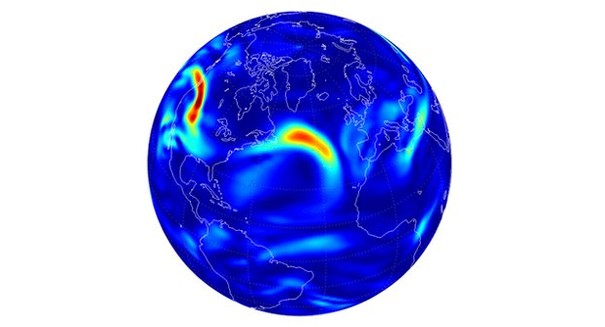In the past couple of weeks there have been several research studies projecting environmental consequences to rising global temperatures. It is an interesting mix of good and bad. Let’s start with the good.
Climate change studies of the southern and eastern parts of Africa show a short benefit with increasing yields of staple food crops. These areas project increased rainfall through the 2030s leading to bumper crops of corn, rice and wheat, and as long as temperatures do not exceed plant tolerance levels should see better harvests.
But what one continent receives another loses. The same studies project that much of southeastern Latin America will face increasingly drier conditions requiring major investments in irrigation by the 2030s.
And both inevitably will be impacted negatively by atmospheric warming throughout the latter part of the century with temperatures exceeding the heat tolerance limit of current staple crops. So by 2090 without the development of new heat tolerant crop strains both regions of the planet will witness dramatic drops in yields.
The two global maps shown below illustrate the near-term (2030) and longer-term (2090) projections and the degree of confidence the research provides based on the data studied. It is interesting to note that climate change negative impacts remain significant in the American and Canadian corn and wheat belts throughout the century. In contrast eastern parts of North America and much of Eastern Europe through Russia will be beneficiaries of rising atmospheric temperatures. From the the 2030s through the 2090s the study projects a trend towards increasing water scarcity reaching severe levels in much of the American Southwest, Spain Iraq, Iran, Southeastern Australia, India and Pakistan, and the Yellow River basin of Northern and Central China.
Another good news climate change item reported in the last week is the dramatic recovery of an isolated coral reef that suffered bleaching back in the 1990s. Based on an Australian study over 15 years of Scott Reef located in the Indian Ocean the researchers happily reported the reef’s full recovery. The massive bleaching was attributed to a number of environmental insults including rising ocean temperatures, disturbances to water quality and overfishing. Scott Reef may be an anomaly but it does speak to the resilience of life even in the presence of profound environmental disturbances. Let’s hope that Scott Reef is not “the isolated case.”
Now for the bad news. It seems that rising atmospheric temperatures will impact airfares. The reason, rising atmospheric turbulence will mean more wear and tear on jet planes traveling ocean routes. As reported in Nature Climate Change this week, it won’t be just the storms that will make air travel less comfortable. Researchers predict increasing incidents of clear-air turbulence resulting from global warming. Clear-air turbulence is impossible to detect until an airplane enters the airspace where it is occurring. It often produces some pretty rough rides leading to damaged aircraft and injured passengers. The North Atlantic, the busiest air corridor today on the planet, will see “a 10 – 40% increase in the median strength of turbulence and a 40 – 170% increase in the frequency of occurrence of moderate-or-greater turbulence.” So for the airlines it means higher operational costs and for passengers higher airfares and bumpier flights, a consequence of global climate change.


















[…] Climate change vulnerability: diverging definitions => Consequences of Atmospheric Warming Latest Good and Bad Reports on Climate Change Impacts => Climate change in Australia: agricultural impacts and adaptation Climate Change in […]